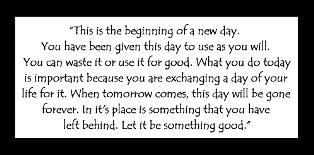The Democratic message has been winning in 2007, but it was weak in 2002.
Allow me to give you an example of my ongoing argument with some other stubborn Democrats who bash John Edwards for his IWR vote and for not reading the classified NIE that nearly always ends with my having the last word.
There was a complete failure on George Tenet's part to allow even a shadow of doubt about the strength of the CIA's WMD evidence to come through in the infamous and incredibly misleading White Paper (declassified 28-page report for Senators outside the Intel Committee).
Democrats didn't stand a political chance against this kind of public misleading regardless of what the classified NIE had to say. Because the White Paper would not publically confirm any of George Tenet's shaky reservations which he'd expressed in private, a Democrat's political achilles heel during such a time as 2002 would have been fully exposed by this damnation of truth known as the White Paper. I see that White Paper as the final nail in the coffin of truth.
Could or should John Edwards have gone with his gut and voted NO (as one-time advisor Bob Shrum admits Edwards wanted to do?) Obviously, Edwards feels, in retrospect, that he should have gone with "NO". But his journey to YES is clearly understandable and, as we've already witnessed by public response, FORGIVEABLE.
Some may tell you that they forgive Edwards, but they now don't trust him. I tell them that I will vote for Edwards not because he's asked for forgiveness, but because of what I believe he will do from this moment on - with the wisdom that has come from hard lessons learned along the way.. I have no doubt that his instinct was right all along, even if his vote wasn't.
Why do you think John Edwards is so careful and determined to call the War on Terror a political "bumper sticker" tool now? I think it's because he was burned, in a political sense, by those war-marketers who used such tools to publically strong-arm Democrats in 2002.
~~~~~~~~~~~~~~~~~~~~~~~~~~~~~~~~~~~~~~~~~~
About the White Paper:
FROM DANA PRIEST:
Report Says CIA Distorted Iraq Data
The White Paper, released Oct. 4, 2002, and based on a classified assessment given to Congress, was the public's only look at the intelligence that policymakers used to decide whether Iraq posed enough of a threat to warrant immediate military action.
Yet the 28-page public document turned estimates into facts, left out or watered down the dissent within the government about key weapons programs, and exaggerated Iraq's ability to strike the United States, the investigation by the Senate Select Committee on Intelligence found.
The heavily redacted White Paper section of the Senate report amounts to a pointed critique of the CIA's willingness to present an unbiased and objective account of the Iraqi threat to the American public.
It also raises questions about the CIA's selective declassification of material, a critique that was made by last year's joint Sept. 11 congressional inquiry and by the subsequent independent Sept. 11 commission.
~~~~~~~~~~~~~~~~~~~~~~~~~~~~~~~~~~~~~~~~~~~~~~~
I think that the NIE was hastily prepared and just another "cheap tool" used to market a liar's war. John Edwards could have read every word and memorized every little punctuation mark a thousand times and it wouldn't have changed a thing.
Our Democrats on the Senate Intel Committee were WORKING IN THE DARK and politically vulnerable.
Senator Bob Graham had this to say about Tenet and the White Paper:
What I Knew Before the Invasion by Sen Bob Graham
At a meeting of the Senate intelligence committee on Sept. 5, 2002, CIA Director George Tenet was asked what the National Intelligence Estimate (NIE) provided as the rationale for a preemptive war in Iraq. An NIE is the product of the entire intelligence community, and its most comprehensive assessment. I was stunned when Tenet said that no NIE had been requested by the White House and none had been prepared. Invoking our rarely used senatorial authority, I directed the completion of an NIE.
Tenet objected, saying that his people were too committed to other assignments to analyze Saddam Hussein's capabilities and will to use chemical, biological and possibly nuclear weapons. We insisted, and three weeks later the community produced a classified NIE.
There were troubling aspects to this 90-page document. While slanted toward the conclusion that Hussein possessed weapons of mass destruction stored or produced at 550 sites, it contained vigorous dissents on key parts of the information, especially by the departments of State and Energy. Particular skepticism was raised about aluminum tubes that were offered as evidence Iraq was reconstituting its nuclear program. As to Hussein's will to use whatever weapons he might have, the estimate indicated he would not do so unless he was first attacked.
Under questioning, Tenet added that the information in the NIE had not been independently verified by an operative responsible to the United States. In fact, no such person was inside Iraq. Most of the alleged intelligence came from Iraqi exiles or third countries, all of which had an interest in the United States' removing Hussein, by force if necessary.
The American people needed to know these reservations, and I requested that an unclassified, public version of the NIE be prepared. On Oct. 4, Tenet presented a 25-page document titled "Iraq's Weapons of Mass Destruction Programs." It represented an unqualified case that Hussein possessed them, avoided a discussion of whether he had the will to use them and omitted the dissenting opinions contained in the classified version. Its conclusions, such as "If Baghdad acquired sufficient weapons-grade fissile material from abroad, it could make a nuclear weapon within a year," underscored the White House's claim that exactly such material was being provided from Africa to Iraq.
 Speaking to a local news channel, Camillus Cutlery historian
Speaking to a local news channel, Camillus Cutlery historian 



















21.jpg)





.JPG)

